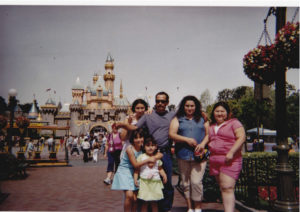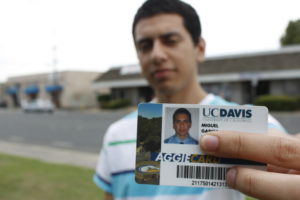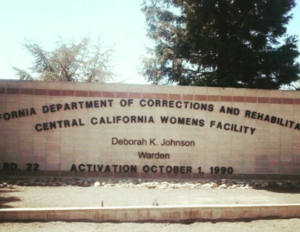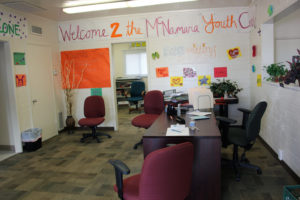We’Ced Youth Media had an amazing year in 2015. Our latest publication went out as an insert in the Merced Sun-Star and reached thousands of community members. We engaged 17 youth reporters and published an average of five articles a month, and most importantly, our stories captured the attention and resonated with both youth and adults alike from the Merced community and statewide. Our success would have not been possible without the continuous support of all of our readers, collaborators. and the hard work of our youth reporters. For giving us an incredible year, we thank you from the bottom of our hearts.
Our ‘Best of 2015‘ list is a collection of stories that give us a glimpse of life in Merced through the eyes of our youth journalists and beat reporter. From living with depression to being a transgender teen, solitary confinement and attending school as a ‘Dreamer,’ here’s a look at the top 10 stories that appealed to We’Ced readers.
The Torment of Isolation: Ending Solitary Confinement for Juveniles

Illustration: Claudia J. Gonzalez
By Claudia J. Gonzalez
After years of litigation and protests, earlier this month California’s Department of Corrections and Rehabilitation agreed to drastically reduce the use of solitary confinement in state prisons. But as prison and human rights advocates celebrated the victory, the legislature put on hold a bill that would have curbed the practice in the state’s juvenile detention facilities.
As a former detained youth, I’ve spent time in “the box,” and I know firsthand the damage isolation caused me and other youth subjected to this inhumane and unjust treatment.
I was 16 when I was first sent to solitary confinement. Frustrated and angry at my situation and the treatment I received from staff, I took my anger out on a fellow prisoner and then verbally assaulted a counselor.
Continue reading here.
Staying a Family, After Deportation

by Elizabeth Arteaga
Photo courtesy of Elizabeth Arteaga
Ed. Note: Studies show there are about 4.5 million U.S. born children with at least one parent who is undocumented. In 2014, President Obama issued the Deferred Action for Parents of Americans (DAPA), which provides relief from deportation for parents who meet eligibility requirements. But critics say DAPA offers little relief to the thousands of families already separated. For Elizabeth Arteagas, her father’s deportation and her mother’s return back to Mexico meant her uncle and sisters have had to step in to fill the role of parents.
Many children enjoy playing “house.” Someone will play the parents and someone else will pretend to be the children. For me this isn’t make believe, it’s my reality. After a deportation and an unfortunate accident, my two adult sisters, Ana and Vanessa, and my uncle Jose fill the role of parents for my little sister, Jessica, and me.
My little sister and I aren’t foster kids and we weren’t abandoned. We used to live with my parents as a family here in Merced: my older sisters Ana and Vanessa, my younger sister Jessica and me. Everything was fine until seventh grade, when my dad was deported back to Mexico. It was just my mom at home with us for a few years until tragedy struck. We got a call one day and found out that our dad had an accident back in Mexico.
Continue reading here.
How A Dreamer Fell Through the Cracks

Byy Miguel Garcia
Photo by Andres Reyes
If someone asked me what the proudest moment of my life has been, without a doubt I’d say the moment I received an acceptance letter from UC Davis. I vividly recall sprinting to the garage to tell my parents the big news. Two years later, I found myself back home in Merced, deep in student debt and without a degree, reflecting on where it all went wrong.
I was born in Mexico and came to this country when I was two years old. I am part of the generation known as Dreamers, undocumented students who were brought to this country by their parents at a young age. As I got closer to graduating high school, I was very aware that I would not be able to get financial aid and that my options for paying for higher education were very limited.
Continue reading here.
In World’s Largest Female Prison, Prisoner’s Organize for Health

By Claudia J. Gonzalez
Photo by Claudia J. Gonzalez
CHOWCHILLA, Calif. — My heart begins to pound as I enter the gym at the Central California Women’s Facility (CCWF) on the outskirts of Chowchilla, about 20 miles south of Merced. Within moments memories of my own time behind bars flood my mind.
I can’t help but wonder at my own sense of being so at home after so many years.
I’m here as a volunteer for a health fair co-organized by an advocacy organization and a group of CCWF prisoners. The facility is one of three female prisons in the state, and with a prisoner population of 3,123 is the largest female-only prison in the world.
Opened in 1990, CCWF has 2,004 beds, and is currently at 155 percent capacity. Twenty prisoners are currently on death row.
Continue reading here.
Life in Merced as a Transgender Teen

By Cheyenne Chaddock
Ever since I was a child, I have struggled with my gender identification. I didn’t fit the societal norms of being a young man. I loved to dress in skirts and put on make-up. I can remember being six or seven and praying to my Goddess to make me a girl. I felt wrong in the skin I was in. I felt like I was in the wrong body.
Being trans is not a disease. Trans people are born in a body of opposite gender than the one they identify as. The body they’re born into doesn’t reflect the person inside.
Continue reading here.
From White Marble to Brown Dirt

By Fernando Almaraz
Photo: Allagash Brewing
“Let’s go home,” yelled one of the foreman. I could not have been happier to hear those words.
It was the second hottest day since I had begun working the fields at a nursery in Hickman, about 30 miles outside of Merced. The temperature had topped 98 degrees and foremen were debating whether to let workers go early.
“Temperatures are going to be like this the entire week,” said one foreman as a slight breeze kicked in. “If you can’t handle [it] don’t come.” My hopes fell.
On that particular summer day nearly one year ago we had been working with shovels to remove weeds that surrounded the rows of peach tree saplings. The loose dirt and sparse shade made the work tough.
Continue reading here.
#FeelBetter: How Hardcore Music Helps Me Cope with Depression

Shot by Alyssa Castro
Edited by Andres Reyes
Ed Note: Robert Cervantez, 19, says he’s been dealing with feelings of depression since middle school. After Robert began resorting to self-harm as a coping mechanism, his family tried conventional therapy but it didn’t seem to help. Ultimately, it was a particular brand of music and the community around it that provided a much needed cathartic outlet for Robert.
#FeelBetter is a social media-driven storytelling campaign about depression in young people, with the idea that sharing stories about not only depression, but also access to treatment, could begin to break through the stigma that keeps so many young people suffering in silence – and also encourage health coverage enrollment among youth.
View video here.
With AB 60, No More ‘Driving in Fear’

By Lisbeth Vazquez
My aunt Maria says that for as long as she can remember, the sight of a police car has intimidated her. For years she worried that she would be stopped while driving around Patterson, where she lives, and that she would get in trouble for not having a driver’s license.
That all changed in January when California enacted AB60, also known as the Safe and Responsible Driver Act. The law allows undocumented immigrants in California to receive driver’s licenses.
Continue reading here.
Letter to My Brother

Photography and words by Alyssa Castro
Ed. Note: In this photo essay, Alyssa Castro takes time to reintroduce the Merced she knows and lives in to her older brother Ignacio, who is currently incarcerated.
Dear Ignacio,
I know I don’t write very often, sometimes it’s hard for me to come up with the words to say. I don’t like asking how you’ve been or what you’ve been doing because those questions run up against the harsh reality that you’ve been in and out of prison most of our lives. I hope you know with certainty that I miss you all the time and you are so loved by our family.
Continue reading here.
Merced City Council won’t #BacktheMac

Photo by Alyssa Castro
By Claudia J. Gonzalez
MERCED, Calif. – It’s a summer afternoon and there’s a group of girls and boys playing in front of the McNamara Park Youth Center in South Merced, known locally as the “Mac.”
“Is it open?” they shout during a game of tag. “We come here every day that it’s open,” exclaimed one of the boys in the group. “It’s very fun, we like it here!”
The Mac offers a variety of programs for local youth that residents and youth advocates say are vital to the community.
Continue reading here.
 Translate
Translate
